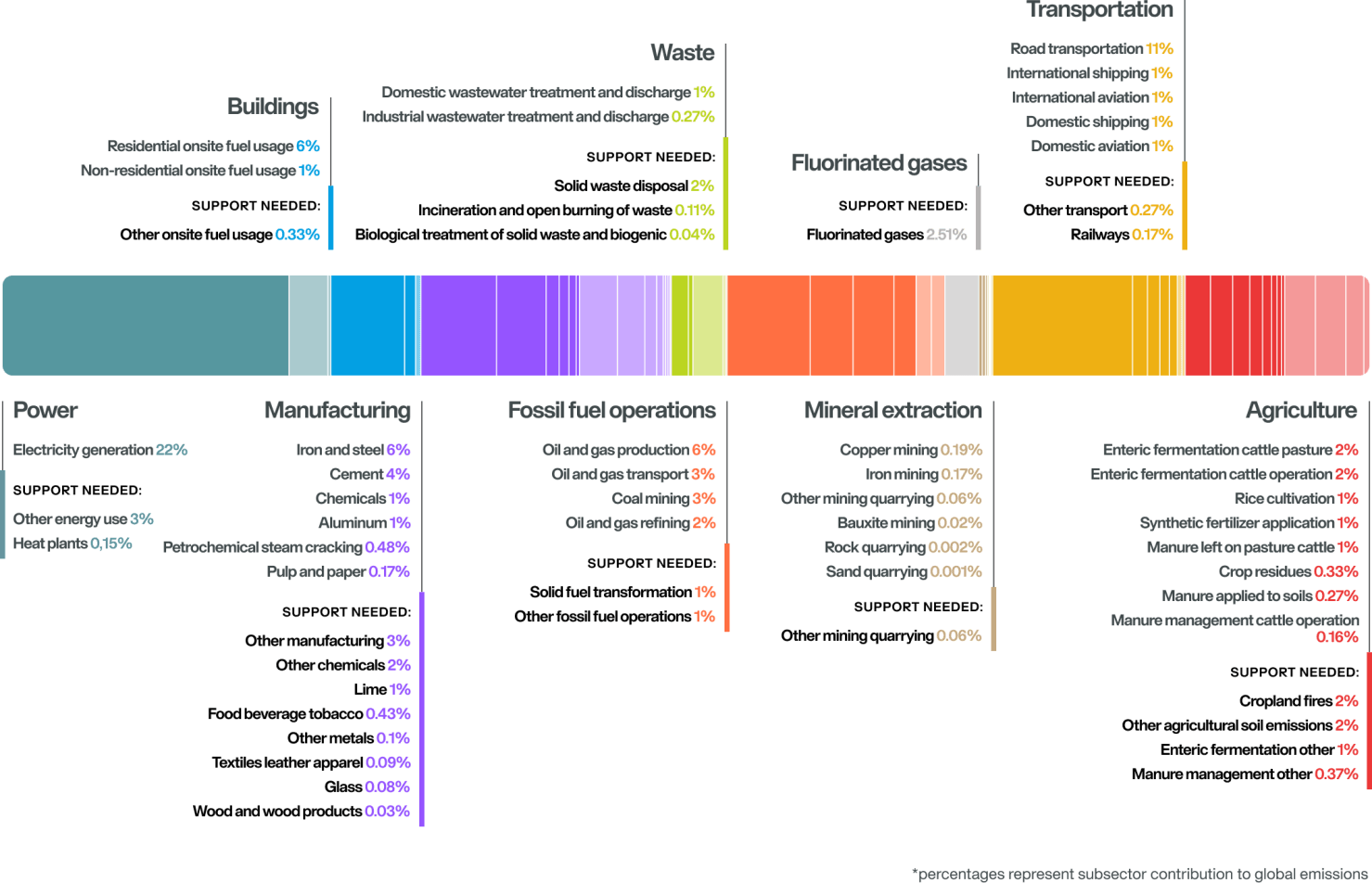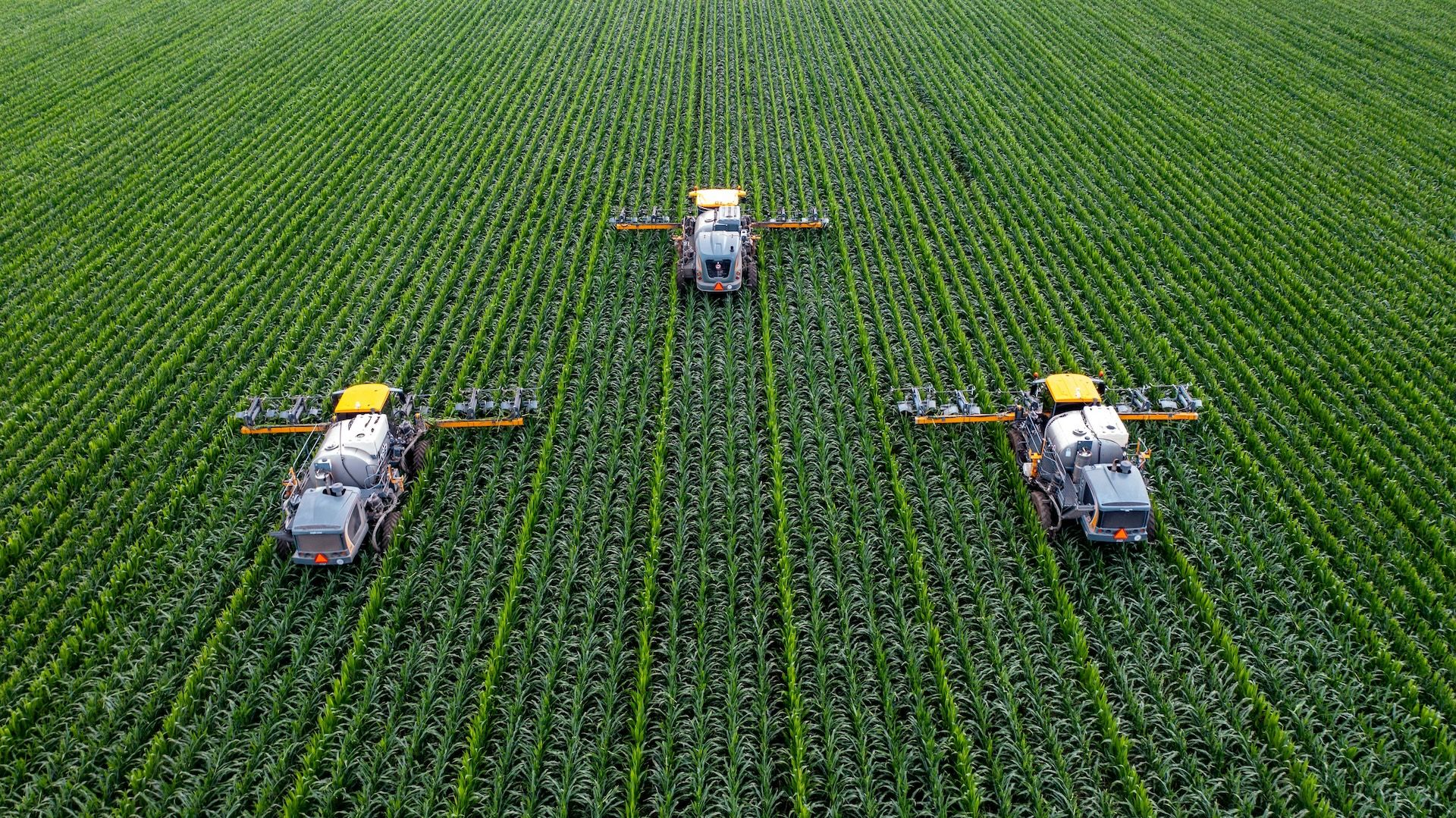Our Goal
We make meaningful climate action faster and easier by harnessing technology to track greenhouse gas (GHG) emissions and other pollutants with unprecedented detail and speed, delivering information that is relevant to all parties working to achieve net-zero global emissions.
Our Purpose
For decades, measurements such as the Keeling Curve have given us the big-picture view of how much carbon dioxide is in the Earth’s atmosphere. We know emissions are on the rise, and we know it’s a result of our continued use of fossil fuels.
But we need additional information about exactly where and when greenhouse gas emissions are occurring in order to set actionable goals to reduce them and to track our progress toward these emissions reduction goals. Climate TRACE was formed in order to provide this insight on a comprehensive basis across all countries, major emitting industries, and major individual sources of emissions, enabling a new era of radical transparency that will help facilitate concrete climate action.
Until now, most emissions inventories have been based on self-reported, often years-late data that often had to rely on rough estimates, opaque methods, and inaccessible reporting. Government officials, scientists, investors, executives, and activists need better data to support the creation of policies, programs, and campaigns aimed at limiting global temperature rise to 1.5°C as agreed to under the Paris Climate Agreement.
That’s where Climate TRACE comes in. We’re harnessing technologies like artificial intelligence (AI) and machine learning (ML) to analyze over 90 trillion bytes of data from more than 300 satellites, more than 11,000 sensors, and numerous additional sources of emissions information from all over the world. The result is a groundbreaking approach to emissions monitoring… one that is independent, transparent, and timely.
The journey began in 2019 when two of our founding coalition members, WattTime and TransitionZero, teamed up to receive a Google.org grant to monitor emissions from power plants from space using satellites. At the urging of former US Vice President Al Gore, the project opened conversations with many researchers and advocates around the world, who started asking: if even more of us joined together, how far could this approach go? With enough collaboration and data sharing, could we together extend such techniques to collectively monitor nearly all human-caused greenhouse gas (GHG) emissions globally?
The project was so ambitious we initially viewed it as a high-risk, high-reward moonshot. But to our surprise and delight, over time it has become clear that the answer is yes, it can be done. And so Climate TRACE launched in July 2020 and has now gathered over 100 collaborating nonprofits, tech companies, universities, researchers, and climate experts.
Climate TRACE’s global emissions inventory, released in September 2021, provided the first comprehensive accounting of GHG emissions based primarily on direct, independent observation. In November 2022, the coalition began monitoring the largest 500 emitting assets in each emitting sector worldwide. In December 2023, we released a nearly comprehensive global analysis of over 350 million emitting assets worldwide. In November 2024 we increased out coverage to 660 million assets worldwide and also provided non-GHG emissions for all assets.
In 2025, we release emissions data monthly (year-to-date data with a 2 month lag). We also launched a new tool that shows how PM2.5 particles disperse from industrial sources and travel to communities. We also launched a first-of-its-kind emission reduction roadmap tool that calculates the emission reduction potential from applying mature and commercially available solutions at every single asset worldwide.
Together, we’re making GHG and non-GHG emissions visible. Are you interested in helping to trace the roots of the climate crisis, and use those data to help reduce emissions faster and more accurately? If so, join us! Only by working together will we we able to solve the climate crisis in time.
Our Roadmap
Our work builds upon recent advances in satellite observation and artificial intelligence that are enabling breakthroughs in emissions monitoring across sectors. Our work is based on cooperation and collaboration and we aim to work with and learn from researchers and technologists around the globe.
That means Climate TRACE is constantly evolving and improving. We aim to harness the latest improvements in technologies and methodologies to provide the most accurate picture of global emissions possible.
Now Recruiting
Climate TRACE member teams are now providing detailed asset-level estimates for sectors making up 75% of global emissions. We still only have national-level estimates for many of the smaller emitting sectors, such as railways and fluorinated gases. Interested in helping the world get to 100% global asset-level coverage? Contact us about joining the coalition or supporting our work!



